The American Midwest, often called the “Breadbasket of America,” owes its rich heritage to the pioneering farmers who settled its fertile plains. For those keen to understand this vital history, the Nelson Pioneer Farm & Museum in Oskaloosa, Iowa, offers an immersive journey into rural life of the past. This living history museum, established on land settled by the Nelson family shortly after it was opened to settlement, features over a dozen historic buildings. A visit here provides a fascinating glimpse into the daily lives and essential occupations of Iowa’s early inhabitants.
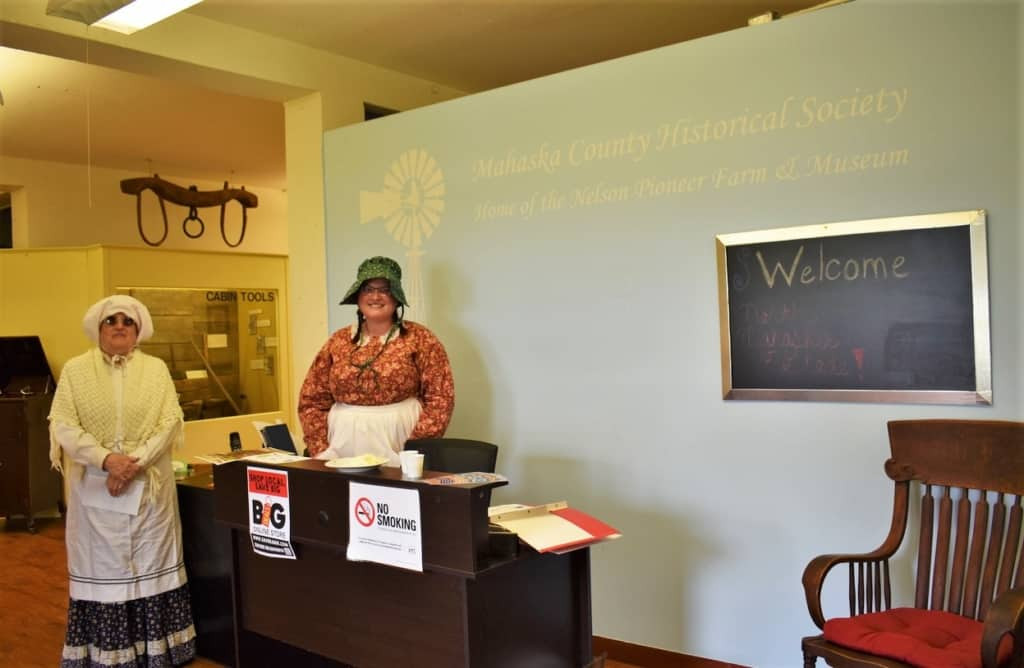 Our guide is all geared up in period dress for today
Our guide is all geared up in period dress for today
Guided Tour in Period Costume
Located on the northeastern edge of Oskaloosa, the Nelson Pioneer Farm Museum stands on a portion of the original land claimed by the Nelson family who migrated from Ohio in search of fertile, untouched soil. Their initial 160-acre claim expanded significantly over time. Today, the museum welcomes visitors to explore a preserved piece of this pioneering legacy. Arriving after a school group tour, we enjoyed a more personal experience with a guided tour led by Margaret, the museum curator. Her period attire immediately transported us back to the 19th century, setting the stage for an authentic exploration of heartland history.
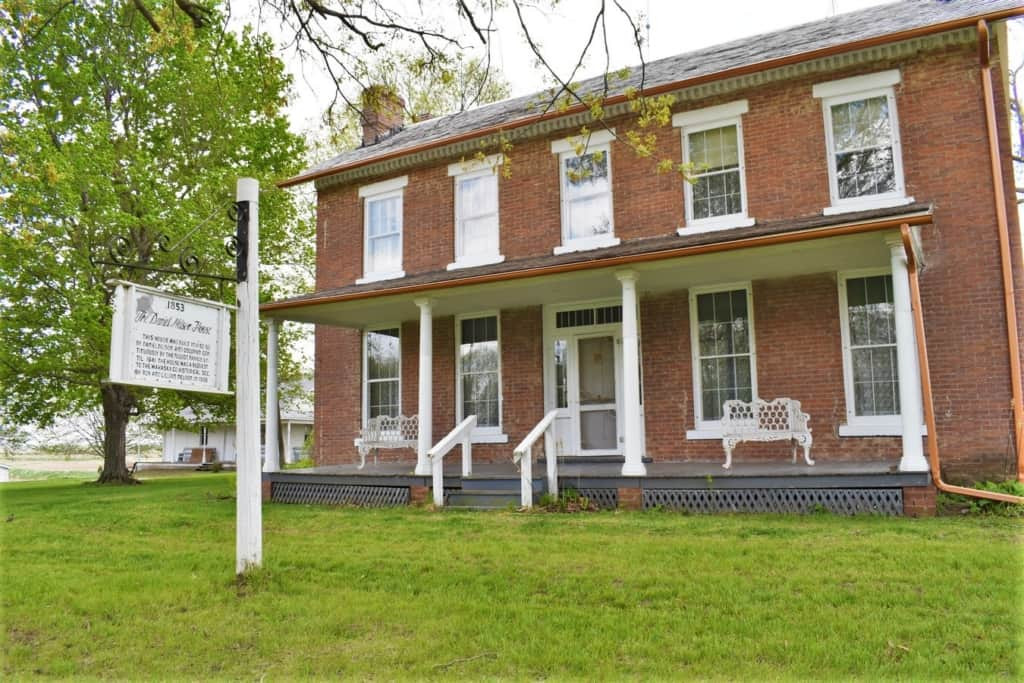 The Daniel Nelson House is a good place to start when learning about life in the heartland.
The Daniel Nelson House is a good place to start when learning about life in the heartland.
The Daniel Nelson Homestead
Our tour began at the Daniel Nelson House, a brick home completed roughly a decade after the family’s arrival. Initially, like many pioneers, the Nelsons lived in a log cabin. By the time the brick house was built, their family had grown to seven, making the cabin dwelling increasingly cramped. Constructing a brick home of this size in the mid-1800s was a significant undertaking. Foundation stones were sourced from nearby quarries and transported during the winter when frozen ground facilitated hauling. The family even built their own kiln to produce the bricks for the house’s exterior. Clearing the land for farming provided ample timber for the home’s interior construction, demonstrating the resourcefulness of pioneer families.
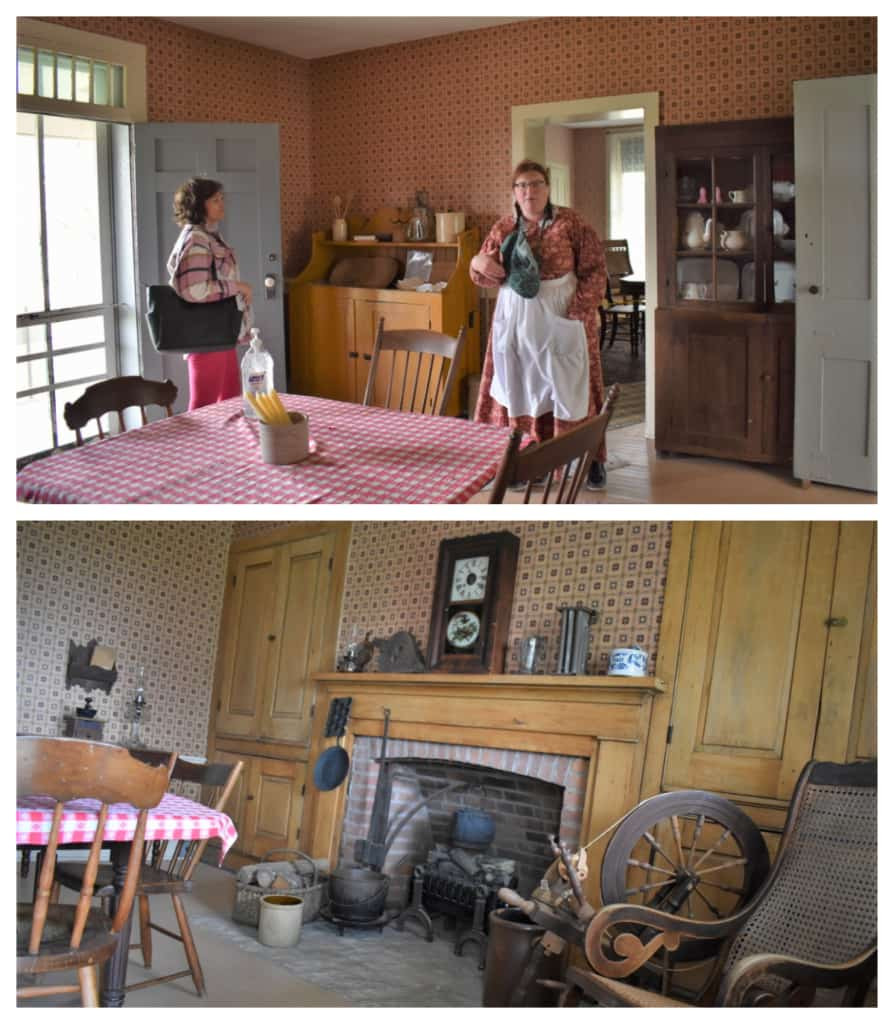 Margaret was an excellent tour guide who explained the background history of many of the displays.
Margaret was an excellent tour guide who explained the background history of many of the displays.
A Glimpse into 19th Century Life
During our visit, we learned about some intriguing aspects of 19th-century life, including unique taxation methods. One such method was taxing residents based on the number of rooms in their homes, even closets. While seemingly unusual today, the Nelson family embraced this, viewing it as a symbol of status. They also faced taxes on the number of window panes, yet their home boasted nearly 200, reflecting their prosperity and social standing in the community. Remarkably, the home remained without electricity or running water throughout the Nelson family’s occupancy. Heating the five-room house relied on four fireplaces, highlighting the simpler, yet demanding, aspects of life during that era.
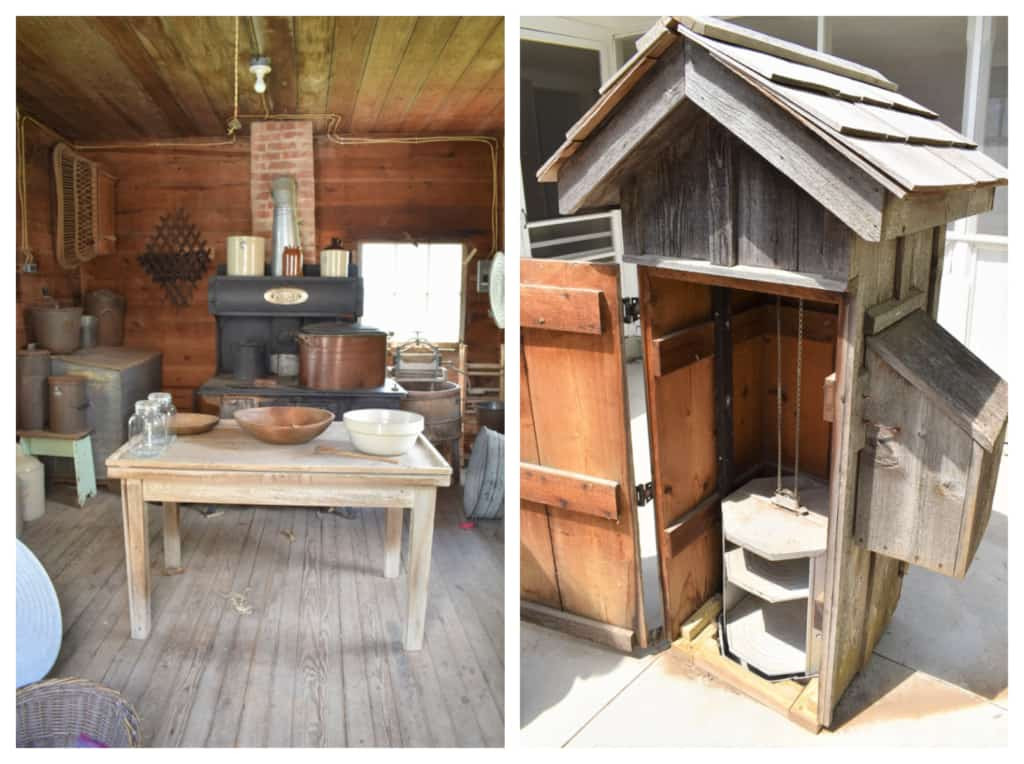 A summer kitchen would have helped the family avoid heating up the house during a hot summer day in Iowa.
A summer kitchen would have helped the family avoid heating up the house during a hot summer day in Iowa.
Summer Kitchen and Food Preservation
Kitchens in the 1800s were vastly different from our modern, appliance-filled spaces. While fireplaces provided warmth during Iowa’s cold winters, using them for cooking in the summer months would have made homes unbearably hot. To combat this, summer kitchens, detached from the main house, were common. The Nelson Pioneer Farm Museum showcases a summer kitchen, illustrating how families cooked during warmer seasons. Food storage in the pre-refrigeration era was also a challenge. The museum exhibits a “dumbwaiter,” essentially a series of trays lowered into a dry well. This ingenious system kept perishable foods at a cooler, more stable temperature, away from the intense summer heat, showcasing early methods of food preservation.
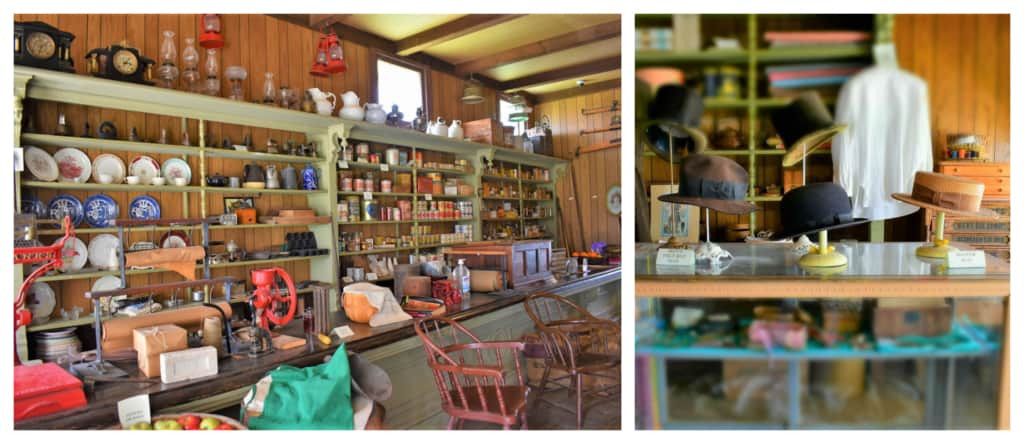 An old general store would have served as an impromptu meeting place for people shopping in town.
An old general store would have served as an impromptu meeting place for people shopping in town.
The Mott General Store: A Community Hub
Margaret then guided us to a section of the Nelson Pioneer Farm Museum featuring relocated historic buildings, saved from neglect and decay. Among these is the Mott General Store, originally from Lacey, Iowa. General stores like this were vital to rural communities, serving not just as retail outlets but also as social hubs. Transactions at the Mott General Store, as in many others of the time, were flexible. While cash was accepted, barter and trade were common forms of payment, reflecting the agrarian economy and close-knit community relationships of the era.
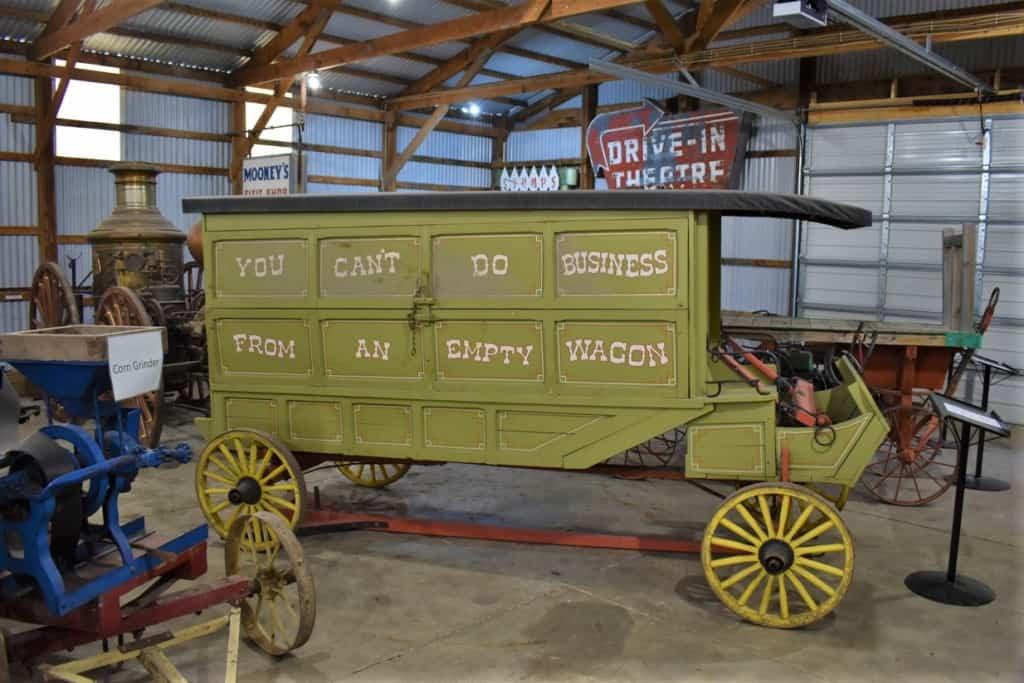 A salesman
A salesman
Farm Equipment and Daily Life Artifacts
Beyond residences and stores, the Nelson Pioneer Farm Museum provides insights into various facets of 19th and early 20th-century rural life. We explored a schoolhouse, post office, scale house, blacksmith shop, lumber office, and voting house, each contributing to a comprehensive picture of a farm community. Moving into a large warehouse, we discovered an impressive collection of vintage farm equipment and vehicles. A wagon with a painted witty saying caught our eye, highlighting the creative advertising methods used by traveling salesmen. These artifacts collectively illustrate the evolution of farming technology and the tools that shaped daily life for heartland pioneers.
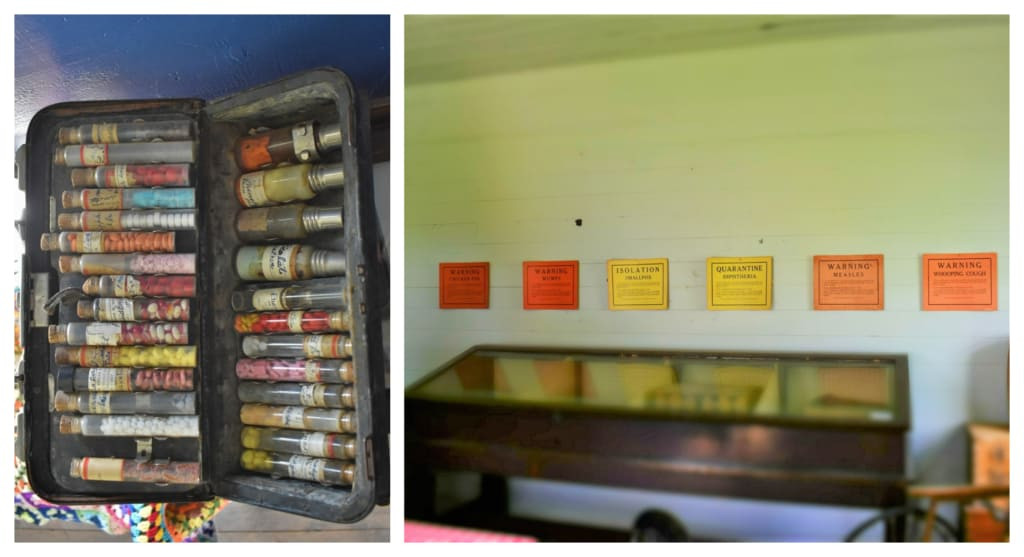 A display points out some of the previous pandemics that have interrupted life in the heartland.
A display points out some of the previous pandemics that have interrupted life in the heartland.
Historical Perspective on Public Health
Visits to historical sites like the Nelson Pioneer Farm Museum offer more than just entertainment; they provide valuable education. The stories and historical context we gain help bridge gaps in our knowledge and offer fresh perspectives on contemporary issues. A display about past pandemics and inoculations at the museum particularly resonated, drawing parallels to our recent experiences. It served as a powerful reminder of the historical context of public health challenges and the resilience of past generations who combatted diseases like polio and measles even without modern medical advancements.
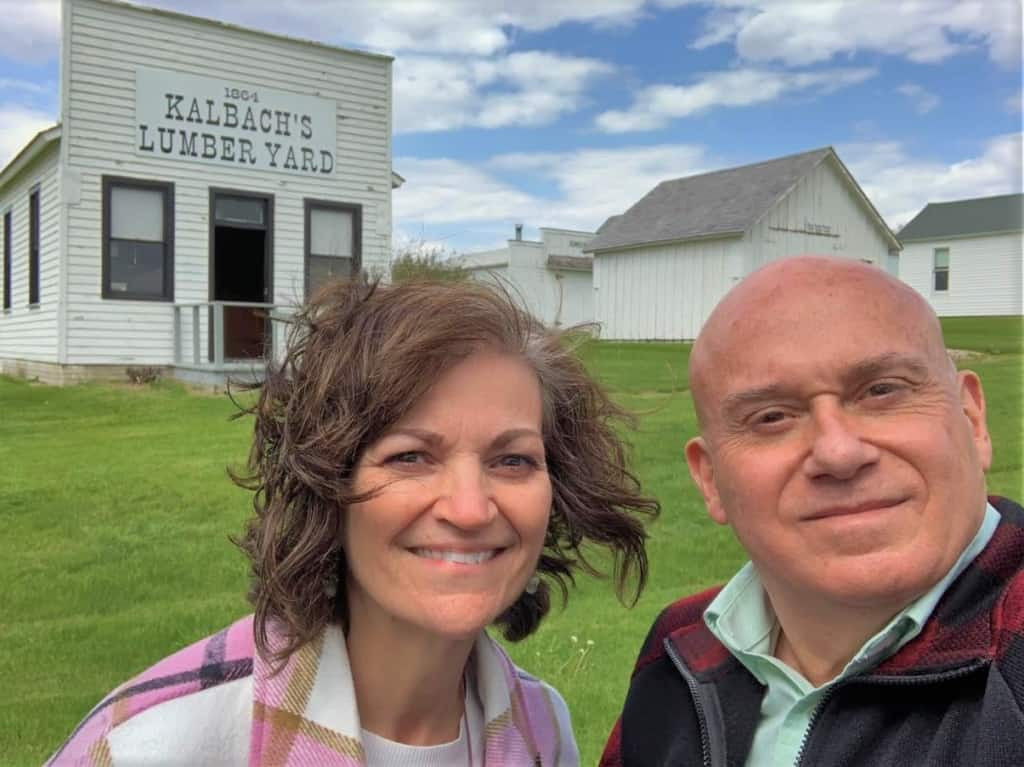 The authors enjoyed learning about life in the heartland at Nelson Pioneer Farm.
The authors enjoyed learning about life in the heartland at Nelson Pioneer Farm.
Experiencing Heartland History at Nelson Pioneer Farm
The Nelson Pioneer Farm Museum is rich with stories and exhibits that cannot be fully absorbed in a single visit. Margaret’s insightful guided tour offered a wonderful introduction, yet there’s much more to explore. The museum grounds include a barn, log cabin, sawmill, windmill, and even a mule cemetery, each holding pieces of history. Notably, a model home from Buxton, Iowa, a former coal mining community, adds another layer to the museum’s portrayal of Iowa’s diverse past. For anyone interested in experiencing and understanding heartland history, a visit to the Nelson Pioneer Farm & Museum is highly recommended.
